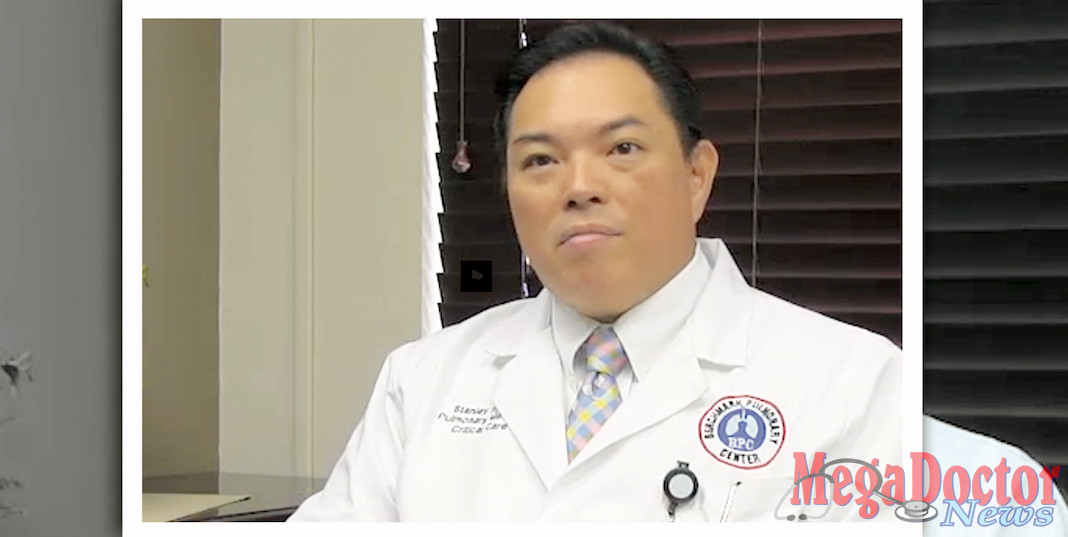
Often-overlooked condition has killed millions of people, including many celebrities
As originally published by Mega Doctor News newsprint edition September 2016.
HARLINGEN – September is “Sepsis Awareness Month,” and educational information is available at Harlingen Medical Center about this life-threatening condition which is relatively unknown — despite having killed millions of Americans, including several famous celebrities.
According to the U.S. Centers for Disease Control (CDC), there are over one million cases of sepsis each year – and the disease kills more than 258,000 Americans on an annual basis. Famous people who have died of sepsis, as a complication to other illnesses or conditions that they developed, include movie stars Patty Duke and Christopher Reeve, and boxing champion Muhammad Ali.
Dr. Stanley Sy, Pulmonologist / Intensivist, said that the key to preventing these deaths is quicker recognition of sepsis and quicker treatment.
“Sepsis needs to be treated like an emergency, just like a heart attack or stroke,” Dr. Sy said. “Early recognition and early administration of the proper therapy is what saves lives.”
Barbara Disbennett, RN, BSN, Education Coordinator at Harlingen Medical Center, said many people don’t hear about the condition because the word “sepsis” is not used very often.
“A recent poll showed that about 45 percent of Americans still have not heard of sepsis, even though we are seeing more progress in awareness,” she added.
“Sepsis is often referred to incorrectly as blood poisoning,” Ms. Disbennett added. “We hear of people dying of ‘infections’, but often this is really sepsis.”
So what exactly is sepsis? Sepsis happens when the body over-reacts to invading organisms, such as bacteria, viruses, fungi or parasites. The body responds too strongly to an infection, and because of this, tissues and organs are damaged — which can lead to failure of critical organs, the person going into shock, and death, according to the Sepsis Alliance, a national organization.
“Sepsis is a medical emergency — and it is critical that the patient receive proper treatment as quickly as possible, in order to survive,” Ms. Disbennett said. “Whatever you do, don’t wait to get treated.”
Sepsis can occur in anyone, at any time, from any type of infection, and can affect any part of the body. According to the Sepsis Alliance, sepsis can occur even after a minor infection.
What causes sepsis? Any type of infection that is anywhere in your body can cause sepsis, including infections of the skin, lungs (such as pneumonia), urinary tract, abdomen (such as appendicitis), or other part of the body. An infection occurs when germs enter a person’s body and multiply, causing illness and organ and tissue damage.
Gracie Hinojosa, LVN, Core Measures Analyst with Harlingen Medical Center, said while anyone can get sepsis as a bad outcome from an infection, those most at risk include:
- people with weakened immune systems
- babies and very young children
- elderly people
- people with chronic illnesses, such as diabetes, kidney or liver disease, cancer, or AIDS.
- people suffering from a severe burn or wound
What are the symptoms of sepsis? There is no single sign or symptom of sepsis. It is, rather, a combination of symptoms, according to the Sepsis Alliance. Since sepsis is the result of an infection, symptoms can include signs of an infection, such as diarrhea, vomiting, sore throat, etc., as well as any of the symptoms below:
S – Shivering, fever or very cold
E – Extreme pain or general discomfort (“worst ever”)
P – Pale or discolored skin
S – Sleepy, difficult to wake up, confused
I – “I feel like I might die”
S – Short of breath
Other symptoms include rapid heartbeat and low blood pressure.
How is sepsis diagnosed? Doctors diagnose sepsis using a number of physical findings, such as fever, increased heart rate, and increased breathing rate. They also do lab tests that check for signs of infection.
Many of the symptoms of sepsis, such as fever and difficulty breathing, are the same as in other conditions, making sepsis hard to diagnose in its early stages.
What should you do if you think you have an infection or sepsis? Call your doctor or go to the emergency room immediately if you have any signs or symptoms of an infection or sepsis. This is a medical emergency. It’s important that you say, “I am concerned about the possibility of sepsis.”
If you are continuing to feel worse or not getting better in the days after an illness, whether you were in the hospital or not, ask your doctor about the possibility of sepsis. Prompt treatment with antibiotics and intravenous fluids may save your life — or that of your loved one. MDN










